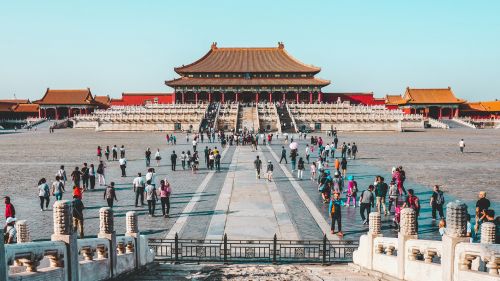Elite Poll: Regional Leaders in Southeast Asia Wary of China

Karl Friedhoff examines poll results of regional leaders regarding China's activities.
Perhaps nowhere does China’s influence loom larger than in Southeast Asia. Its political and economic influence stretches across the region, and Beijing’s involvement there continues to create debate about its intentions. But a new poll of regional leaders from the ASEAN Studies Centre at ISEAS-Yusof Ishak Institute suggests that China’s activities in the region have not won it favor. Instead, regional leaders are wary of China’s actions while remaining more positive about Beijing than publics in the United States or Europe, who have turned sharply against China in the past year.
First, a word on methodology. This is a survey of opinion leaders, not the general public, pulling together 1,032 respondents from academia, business, government, civil society, and regional organizations from ten ASEAN member countries. So, it isn’t possible to interpret these results as being broadly representative. However, it still provides an interesting window into how “interested stakeholders” view China and the region.
At the broadest level, the survey serves as a good reminder that China’s economic and political influence is not being rewarded with growing trust across the region. Just the opposite: China’s growing role is sparking concerns over Beijing’s rising influence.
This is seen first and foremost in views of China’s economic role. Three-quarters (76%) identify China as the most influential economic power in the region, while just seven percent say the same about the United States. But China’s growing economic influence is also creating concern—72 percent say they are worried about China’s growing economic influence.
Regional leaders are also concerned about China’s strategic role. Half (49%) see China as the most influential political and strategic power in the region, while three in ten (30%) say the same about the United States. But two-thirds (63%) of respondents say they have no confidence in China to “do the right thing.”
That is not to say that those in Southeast Asia have consistently positive views of the United States. Expectations for engagement seem to depend on who occupies the White House. In 2020, while Trump was still in office, just 10 percent expected US-ASEAN engagement to increase. Now, with President Biden in the Oval Office, that number has jumped to 69 percent. Accordingly, a majority (55%) of respondents now say they trust the United States as a strategic partner and security provider compared to 35 percent in 2020.
The report makes clear that the door is open for the United States to actually begin to compete in Southeast Asia. But it is unclear if the Biden administration will step through.

